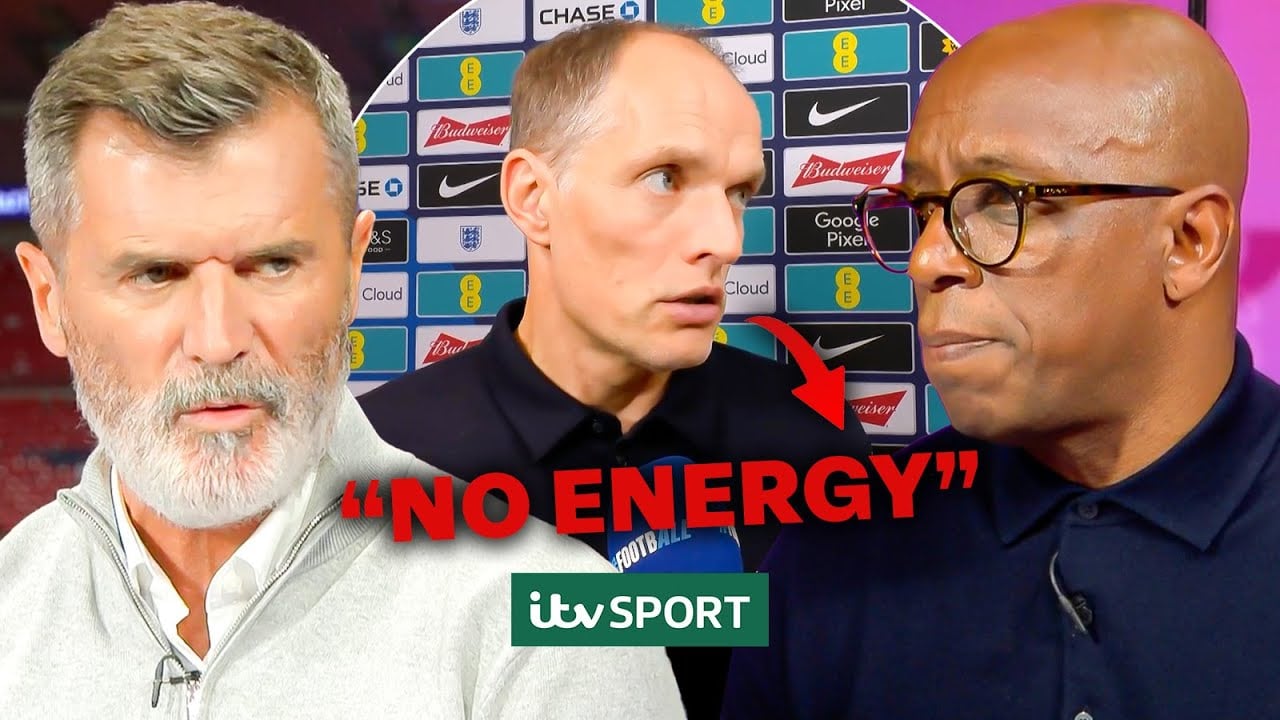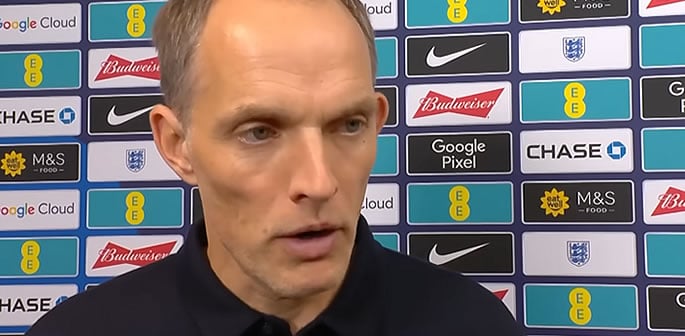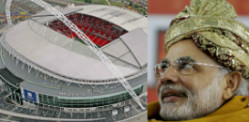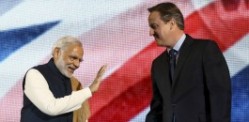"why is the roof still on the stadium?"
Thomas Tuchel has never been one to hold back his thoughts and his latest comments as England manager prove that again.
On October 9, 2025, England convincingly won 3-0 against Wales in a friendly at Wembley.
Although the result was dominant, the attention was on Tuchel’s post-match interview, where he criticised the atmosphere, calling it “silent”.
For a manager known for intensity and high standards, it was a striking statement.
His remarks have reignited a long-running debate about whether Wembley delivers the passion expected from the home of English football.
A Familiar Complaint?

Thomas Tuchel’s comments echo a frustration shared by several England managers before him.
After the win, watched by more than 78,000 fans, he said: “I love English football and I love English football fans and the support they give, but I think the atmosphere did not match the performance on the field.”
He went further, adding: “We had excellent support in Serbia, but [here] we were 3-0 up after 20 minutes, we had ball win after ball win after ball win, and I felt like, why is the roof still on the stadium? That’s just it, it’s nothing big.”
Tuchel later told ITV that “it’s a bit sad” because for half an hour, it was “just Wales fans” being heard.
His words came on a night when paper aeroplanes landed across the Wembley pitch.
A Football Supporters’ Association spokesperson responded: “We appreciate Thomas Tuchel pushing for a better atmosphere; it’s something we all want to see.
“But we hope he understands the reasons why and understands the challenges many fans face in getting to midweek games.”
The debate isn’t new.
Fabio Capello once said: “I prefer playing away from home. When we play at Wembley, sometimes the first mistake the crowd whistle.”
Roy Hodgson echoed similar thoughts in 2014, blaming dull fixtures for low attendances.
Even Gareth Southgate once downplayed paper planes as a sign of disengagement. Tuchel, however, is the first in years to confront the issue so bluntly.
Honesty or Personal Style?

Thomas Tuchel’s forthright tone is not a surprise to those who have followed his career.
From Mainz and Dortmund to Chelsea and Bayern Munich, he has built a reputation for intensity both on and off the pitch.
In August, he apologised for describing Jude Bellingham’s on-field behaviour as “repulsive”, insisting the term was used “unintentionally”.
German journalist Constantin Eckner believes Tuchel’s comments stem from his personality rather than cultural differences.
He said: “That has nothing to do with Tuchel being German.
“That’s just how Tuchel thinks and acts. He is very direct, blatantly honest and can be annoyed by certain things.
“He rarely holds back, and is in a sense the new Jose Mourinho, who similarly speaks his mind during press conferences and post-game interviews.”
Eckner also noted that Tuchel is still adjusting to the rhythm of international football.
“It certainly is a deviation from the way Gareth Southgate behaved during his tenure.”
“Also, I think Tuchel is not yet used to home crowds being that reserved, which can happen at international games.
“During his time as a club manager, the home fans were usually buzzing. Even Mainz had a great home game atmosphere.”
Tuchel’s own defence of his blunt phrasing came after the Bellingham incident:
“I thought I had a little more credit with you guys [media] that I do all this in my second language.”
Yet this time, his point was clear and deliberate.
Eckner added: “In a way, people have to live with Tuchel being this direct. His command of the English language is very good.”
A Mixed Reaction

Reactions to Thomas Tuchel’s comments have been mixed.
Some fans agreed that Wembley can feel subdued, while others felt he unfairly criticised loyal supporters.
Former England defender Stephen Warnock, who was at the match as a BBC Radio 5 Live summariser, saw both sides:
“The performance warranted a good response from the fans. It’s disappointing he’s felt that.
“Is this a negative? It depends on how you interpret it as a fan, whether you take it the wrong way or whether you think you can back the team more.”
Warnock also offered a constructive suggestion: “Maybe there needs to be more done behind the scenes to be able to create pockets of fan groups together where you can actually start the atmosphere going and get the songs going.
“But if it was me and I was sitting in the stands and that comment was made, I’d be thinking about what more I could do to help the team.
“Fans do help you and they do give you that energy.”
Tuchel’s challenge, then, may not only be tactical but cultural – bridging the gap between his own expectations and the reserved traditions of English support.
His goal seems less about criticism and more about connection: pushing both players and fans to elevate the energy together.
Thomas Tuchel’s remarks may have caused a stir, but they underline his uncompromising ambition.
In just 10 months as England manager, he has shown that he demands intensity on every level, from the team and the terraces alike.
Whether his honesty will motivate fans or alienate them remains to be seen.
What’s certain is that Tuchel’s England era won’t be one of polite silence.






























































